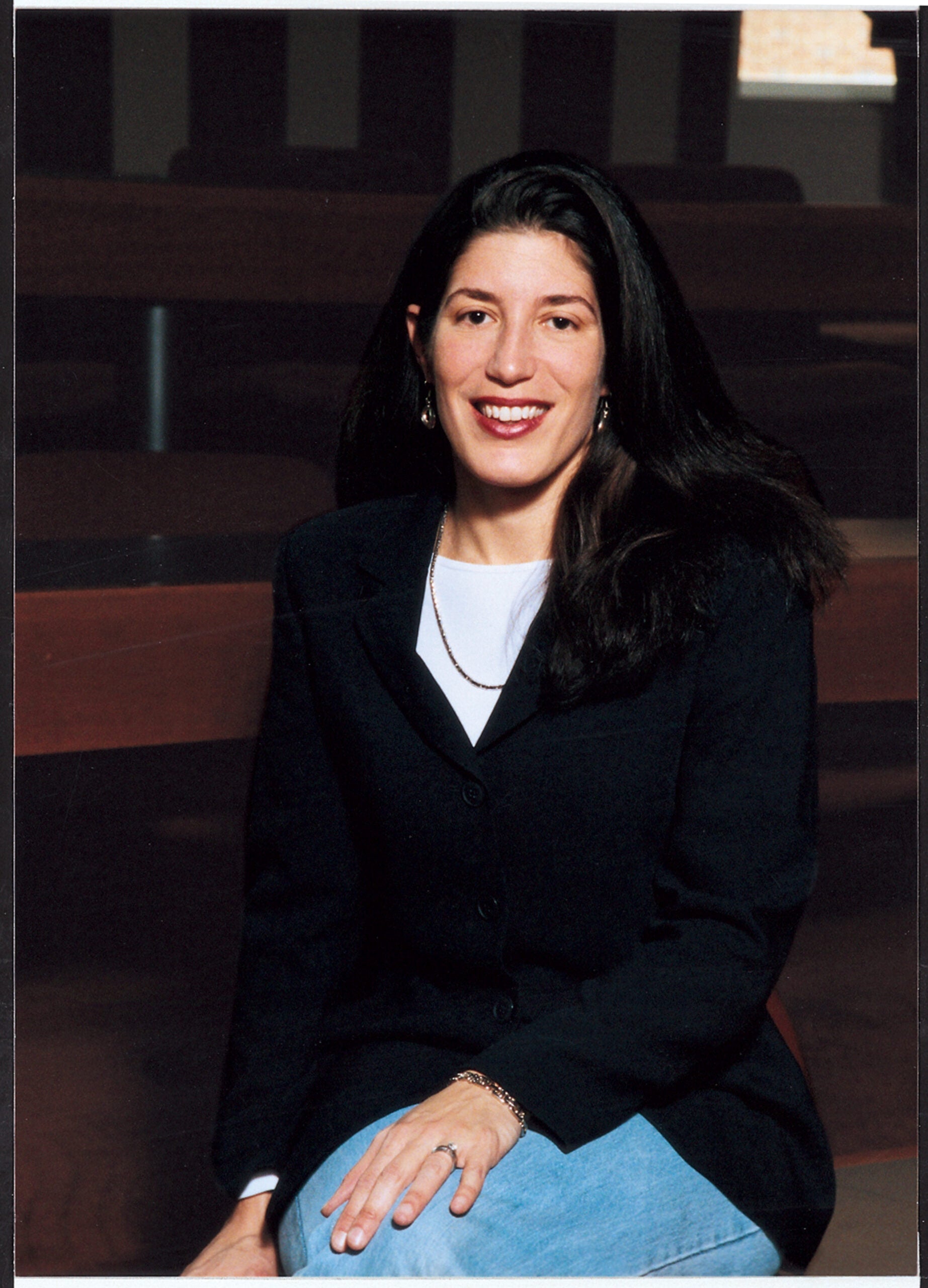
Jennifer Braceras ’94 doesn’t object to being called a feminist. Just don’t forget to call her a conservative also.
The Charles Hamilton Houston Fellow at HLS while on leave from Ropes & Gray, Braceras has been spending the academic year researching legal challenges to standardized tests. But she gained attention outside the academic milieu in the fall by writing a regular column for the Boston Globe, lending a conservative viewpoint to the paper’s typically left-leaning op-ed page.
That viewpoint was needed, Globe editors determined, because of the four-month suspension of conservative columnist Jeff Jacoby, who was disciplined for failing to cite a source for a column on the Founding Fathers. Braceras, who has contributed opinion pieces to the Wall Street Journal, was hired to write a weekly column between Labor Day and election day, with an occasional contribution thereafter. She wrote on the election, from the presidential race to state ballot initiatives, and subjects such as equal pay for women and the votes of Latinos.
“I haven’t tried to create any running themes, although I’m sure some have emerged, including my dislike of Al Gore,” she said.
Braceras’ dislike for the tenets of Al Gore and others in the Democratic party emerged soon after she entered college at the University of Massachusetts Amherst. The daughter of Court of Appeals Judge Jose Cabranes, who was appointed by President Clinton, Braceras registered as a Democrat like most family members, until she found that the party didn’t align with her political philosophy.
“UMass was a hotbed of political correctness, and I found myself not agreeing with the conventional wisdom on campus,” she said. “I found that the Republican club spoke to my views more than the Democrats.”
She also began writing in college, for a conservative campus publication. After graduation in 1989, she served as an assistant to Vice President Dan Quayle’s chief of staff, William Kristol, and then decided to go to law school. She chose HLS, despite the reputation of the student body as liberal.
“I think it’s more challenging to be surrounded by different viewpoints,” said Braceras. “I definitely made great friendships, so I think individuals were very accepting.” Even so, she added, “People here are intense and opinionated.”
A member of La Alianza when she was a student, Braceras said Latino students never judged her by her politics. The wider Latino community, she added, does not conform to a single ideology. Yet she acknowledged that some people do see her as different.
“I had lunch with somebody who said, ‘Wow. You’re a novelty.’ He hadn’t met too many conservatives who are minorities and women.”
And perhaps even fewer, she might have added, who are feminists too.
